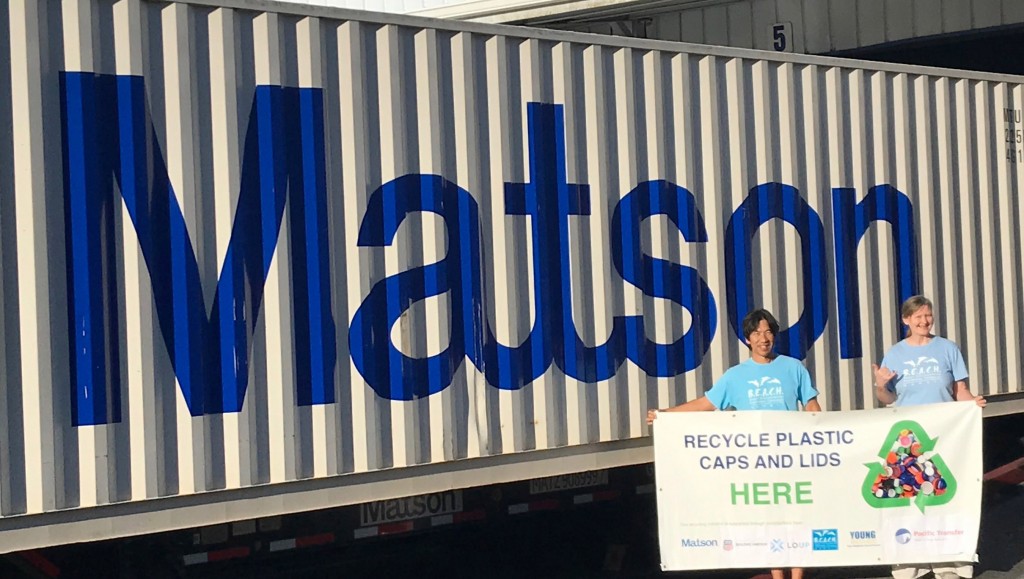
It's not the plastic water bottle that causes the most harm to sea birds, but the cap which is mistaken for food. A non-profit in Hawaii ensured that over 1.2 million plastic caps and lids won't get into the environment and harm sea birds by taking action to collect and recycle them.
The plastic caps were delivered to New Hope Energy where they were first shredded into smaller pieces and then converted into oil using new technology. Eugene Royal, Special Projects Manager at New Hope Energy, describes the plastic to oil conversion as "involving heating the plastic to a very high temperature and depriving it of oxygen." He says that it does not involve any combustion or burning of the plastic. The oil produced is low in sulfur, making it ideal for powering trains and ships. By using plastic to make oil rather than digging up areas such as rainforests, the natural environment can be preserved.
It was very important to Beach Environmental Awareness Campaign Hawaii (B.E.A.C.H), a non-profit focused on bringing awareness and solutions to plastic marine debris, that this plastic was taken out of the waste stream for good and that 100% of the caps were recycled. Normally, the recycling rate for plastic is only about 1-2% worldwide as usually it is not sorted well enough and there is contamination. However, B.E.A.C.H. made sure that all of the caps sent were able to be recycled by ensuring that the caps were cleaned, all stickers, seals and metal were removed and the caps were checked to ensure they were numbers 2, 4 or 5. B.E.A.C.H. involved school children across the island of O`ahu as well as volunteers with clubs, businesses and other community groups. More than 30 organizations took part in sorting and cleaning the caps with many more involved in collecting the caps from home, the work place and at outdoor events.
Suzanne Frazer, co-founder of B.E.A.C.H. said, "It's very tragic that all these birds are dying from ingesting plastic. The plastic ingested includes caps, toys, lighters, fishing floats and other items, particularly if they red, yellow, orange, pink and purple in colour because it resembles their food - squid and fish eggs."


